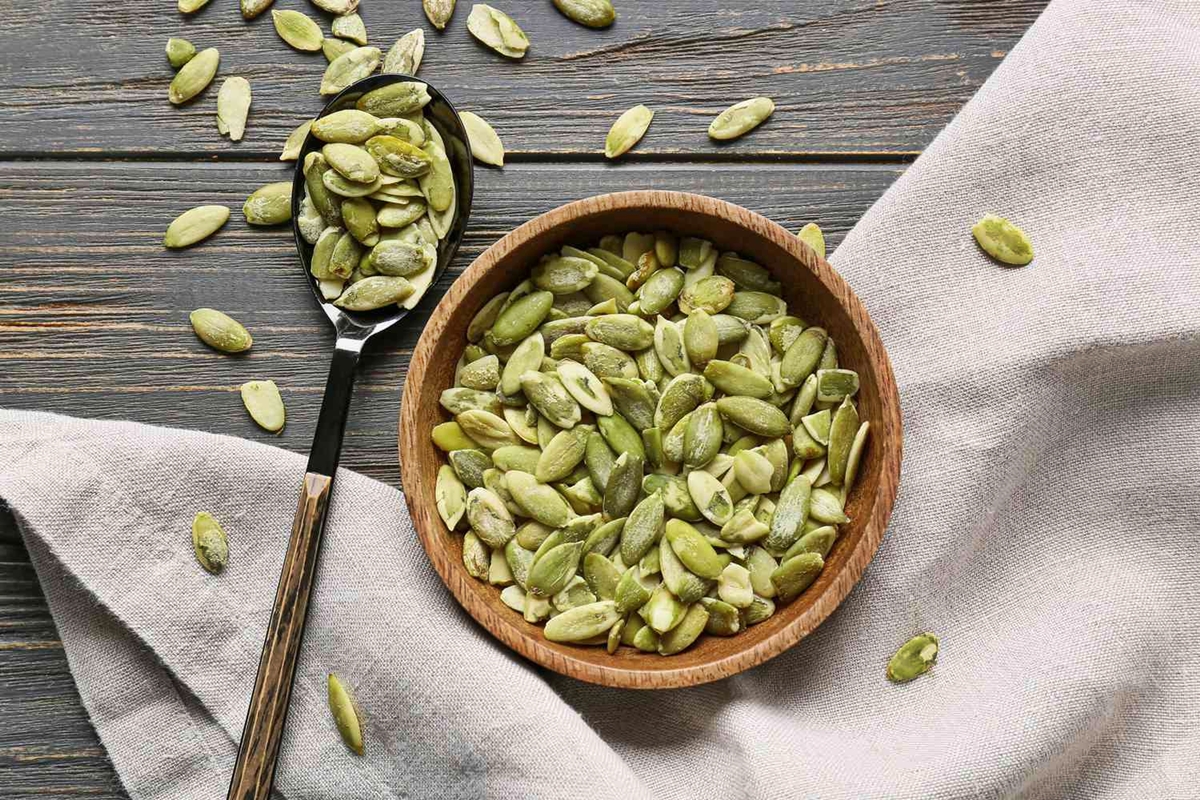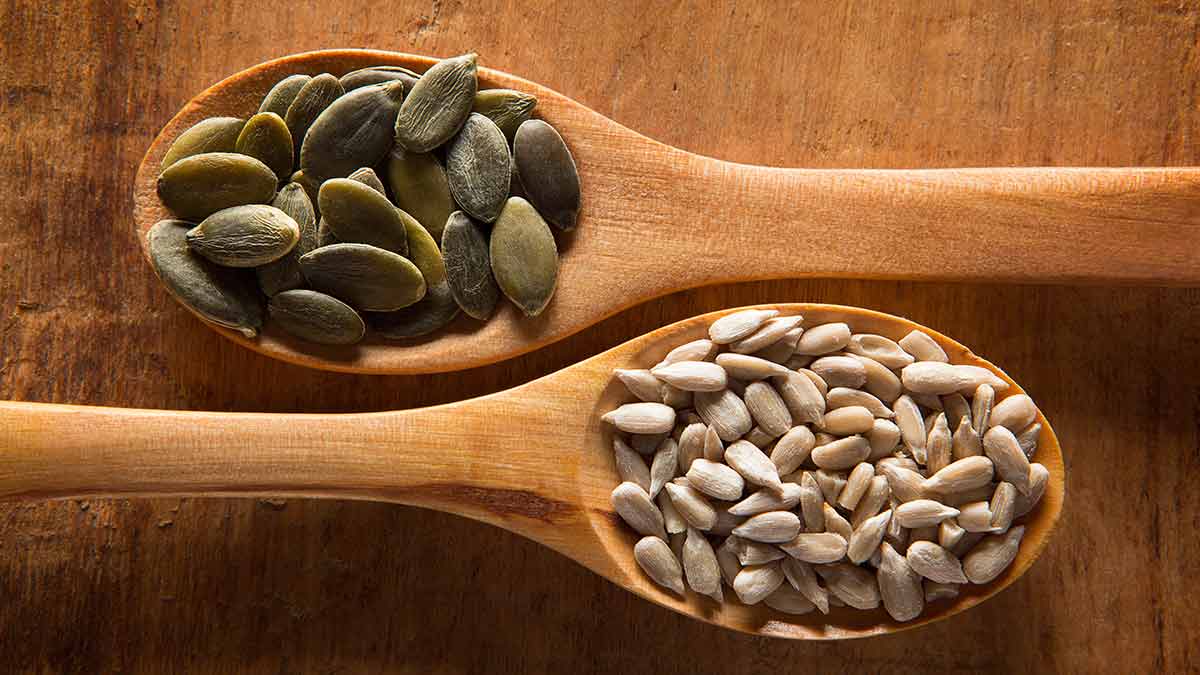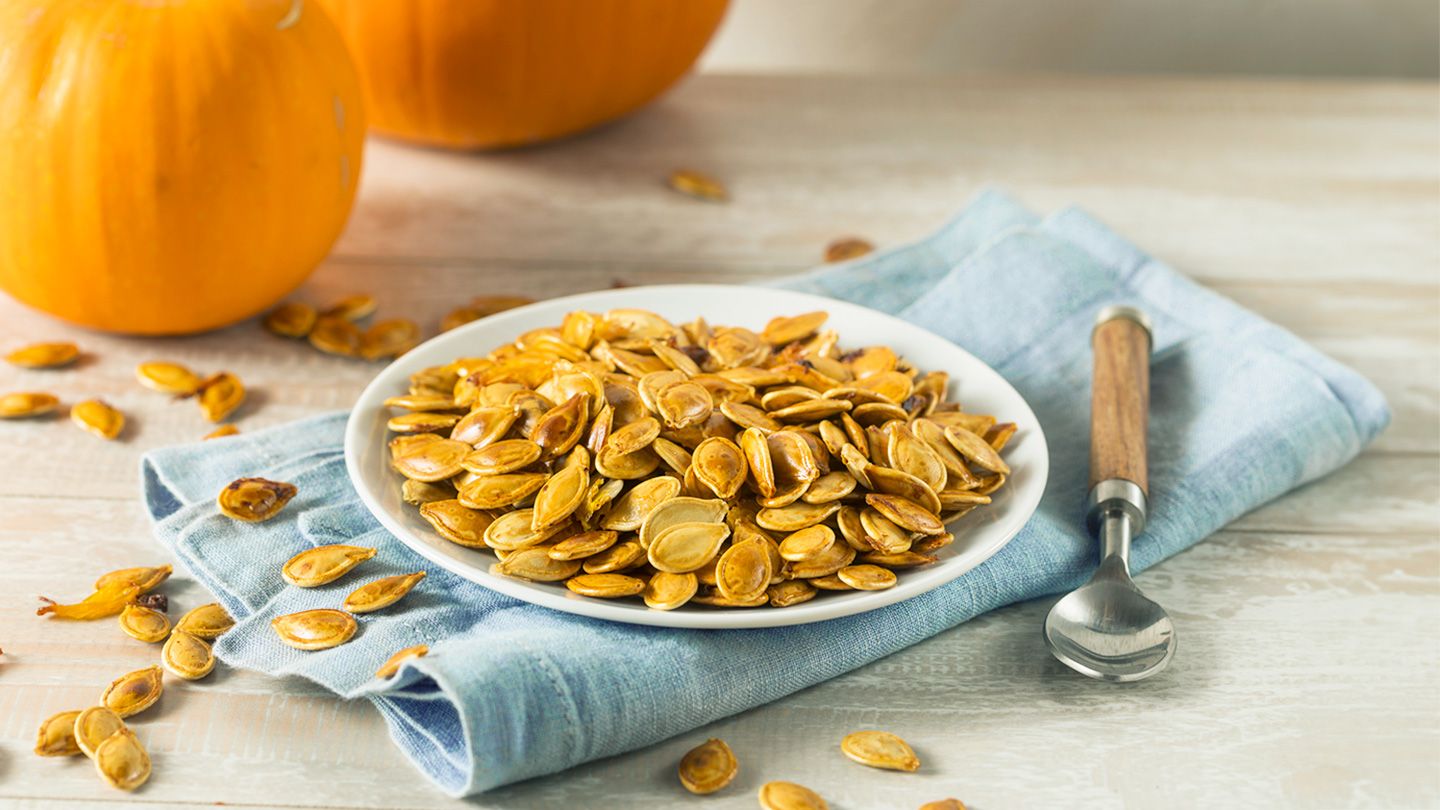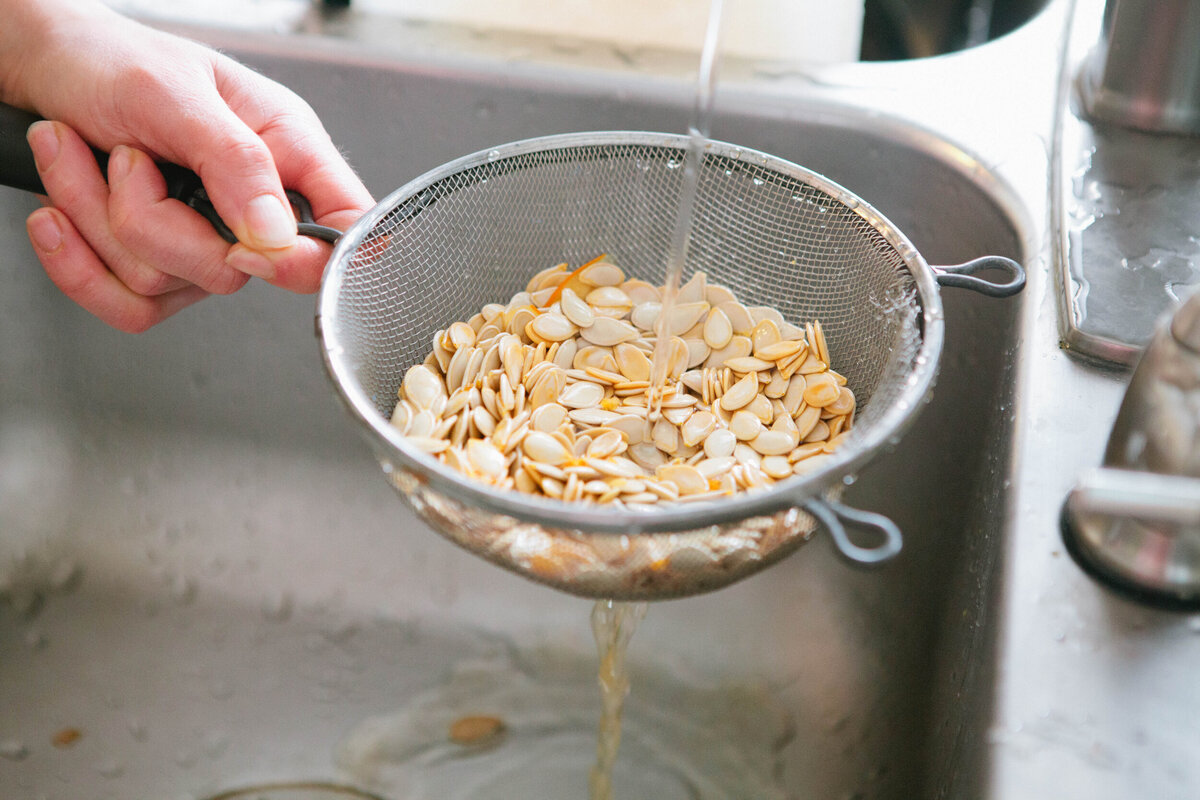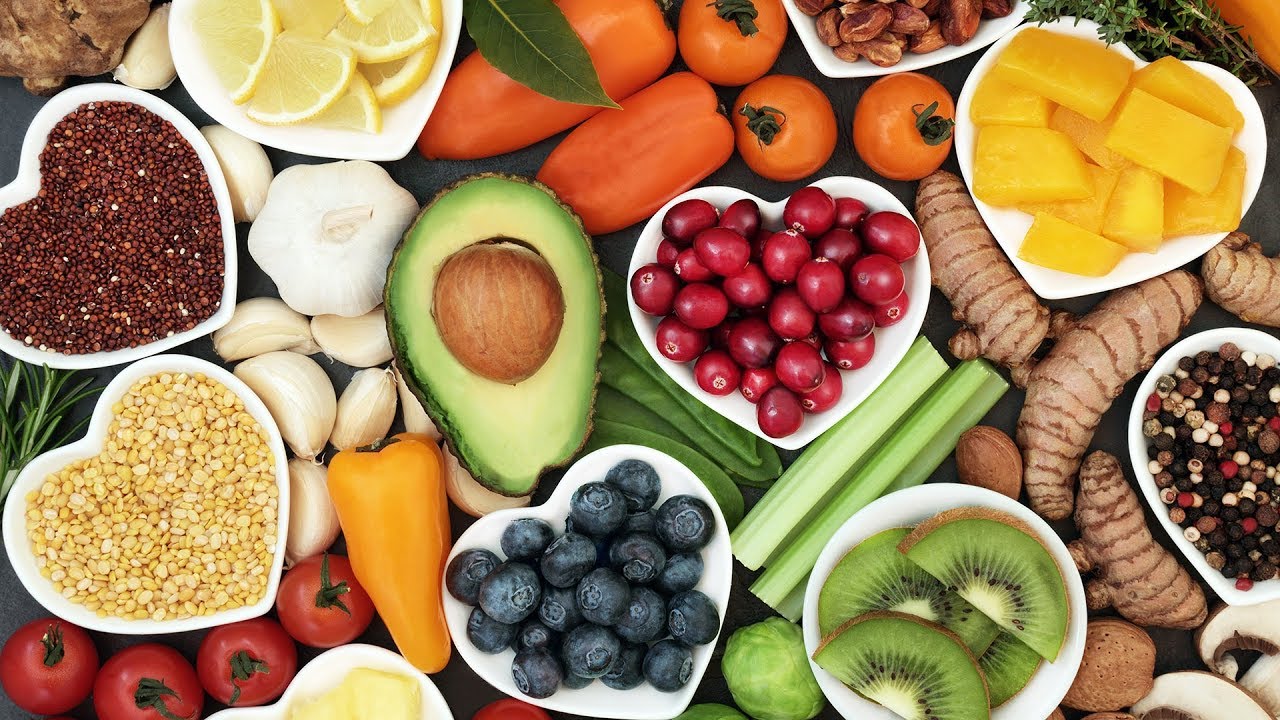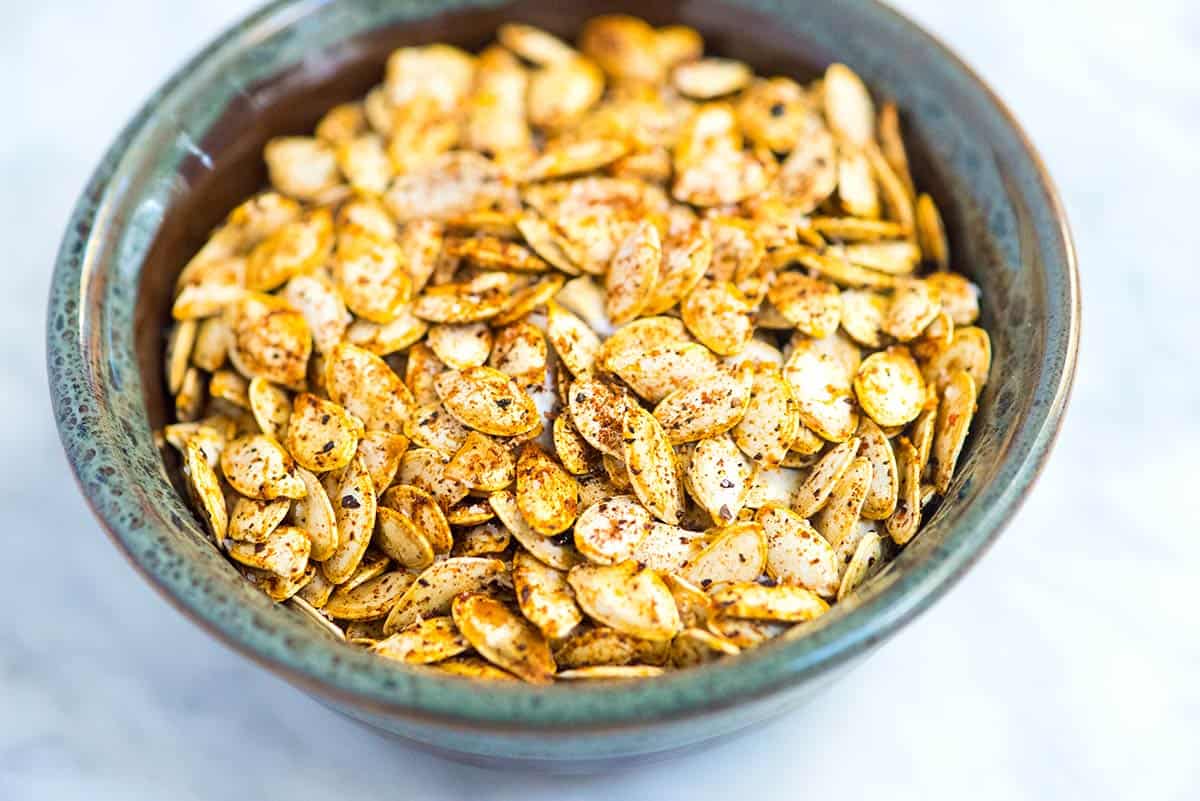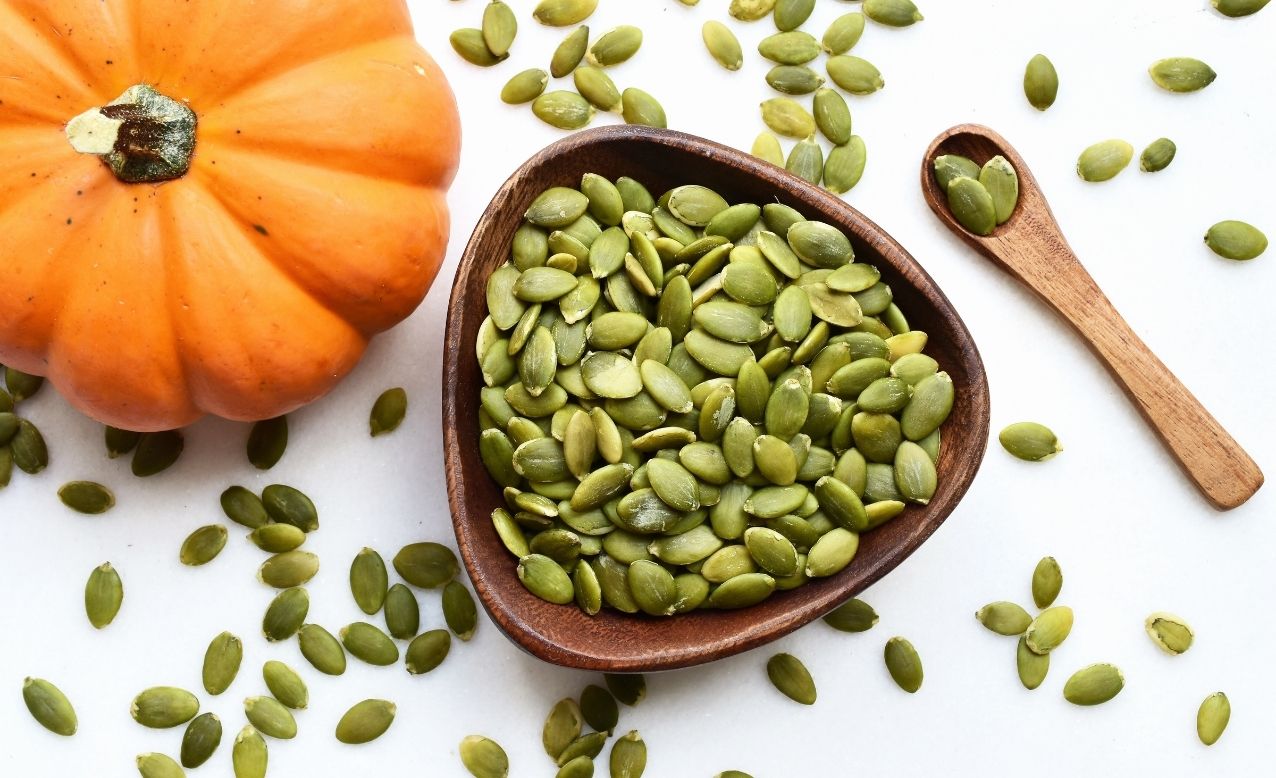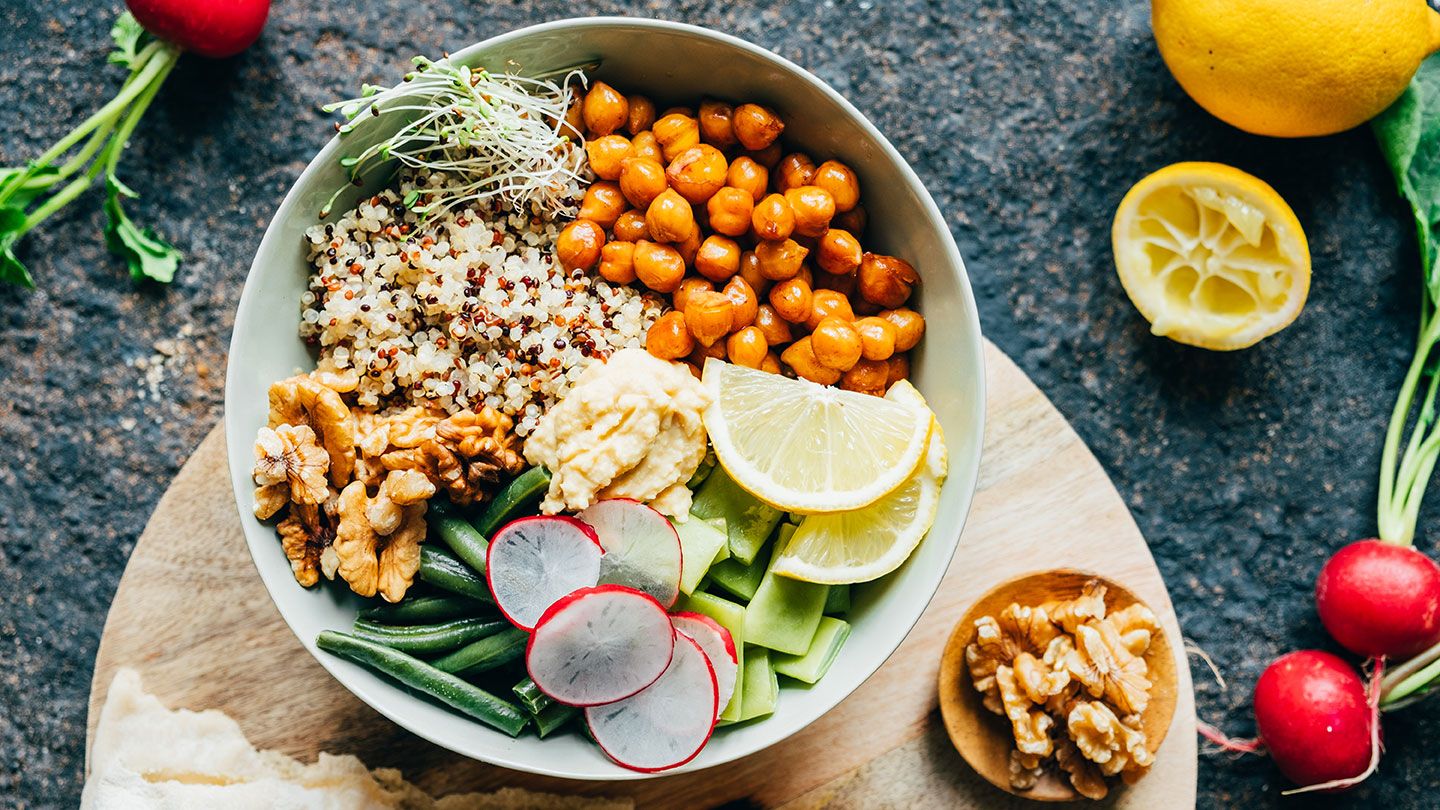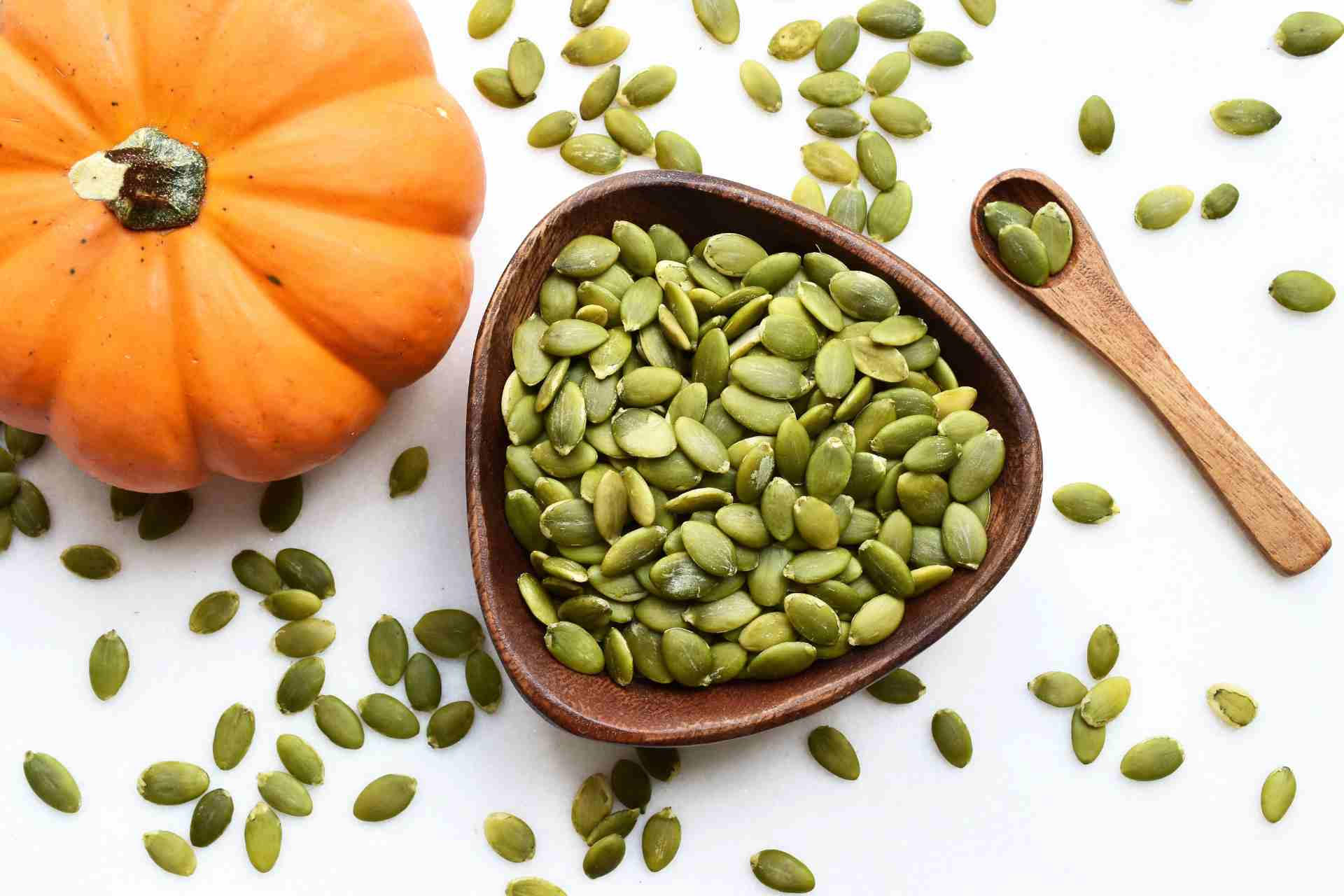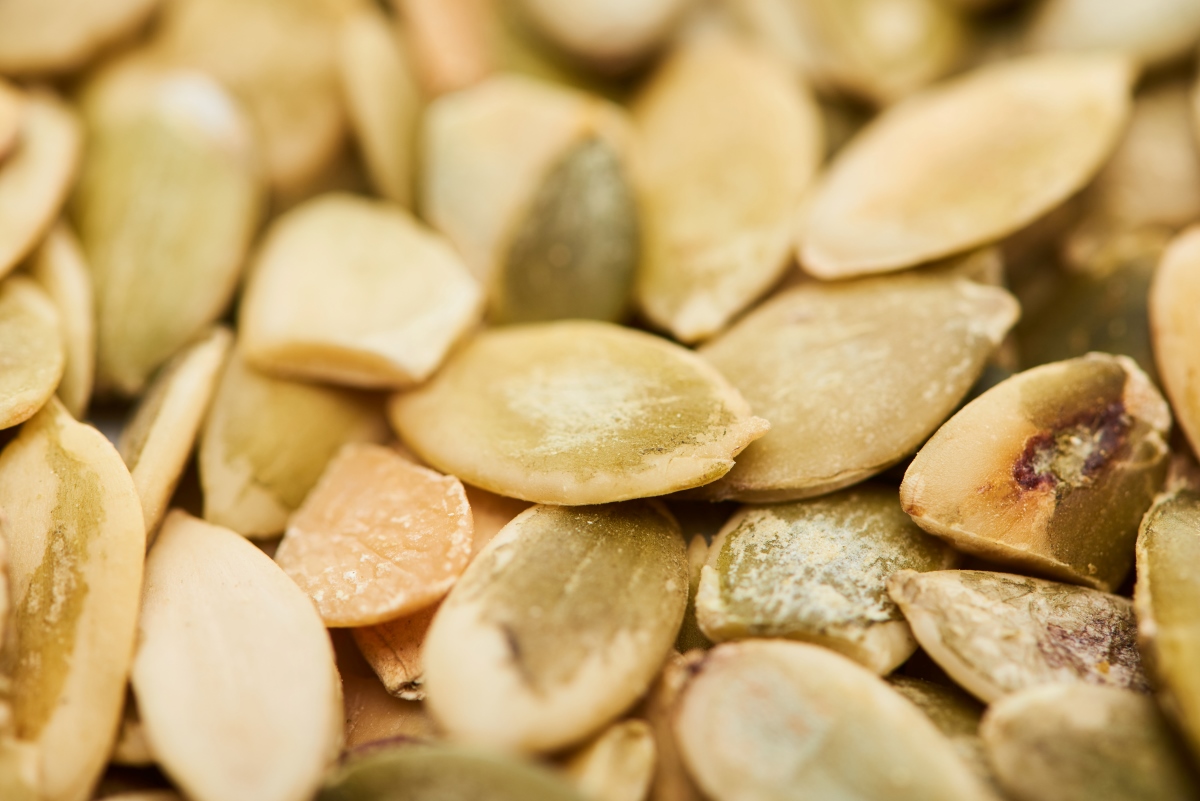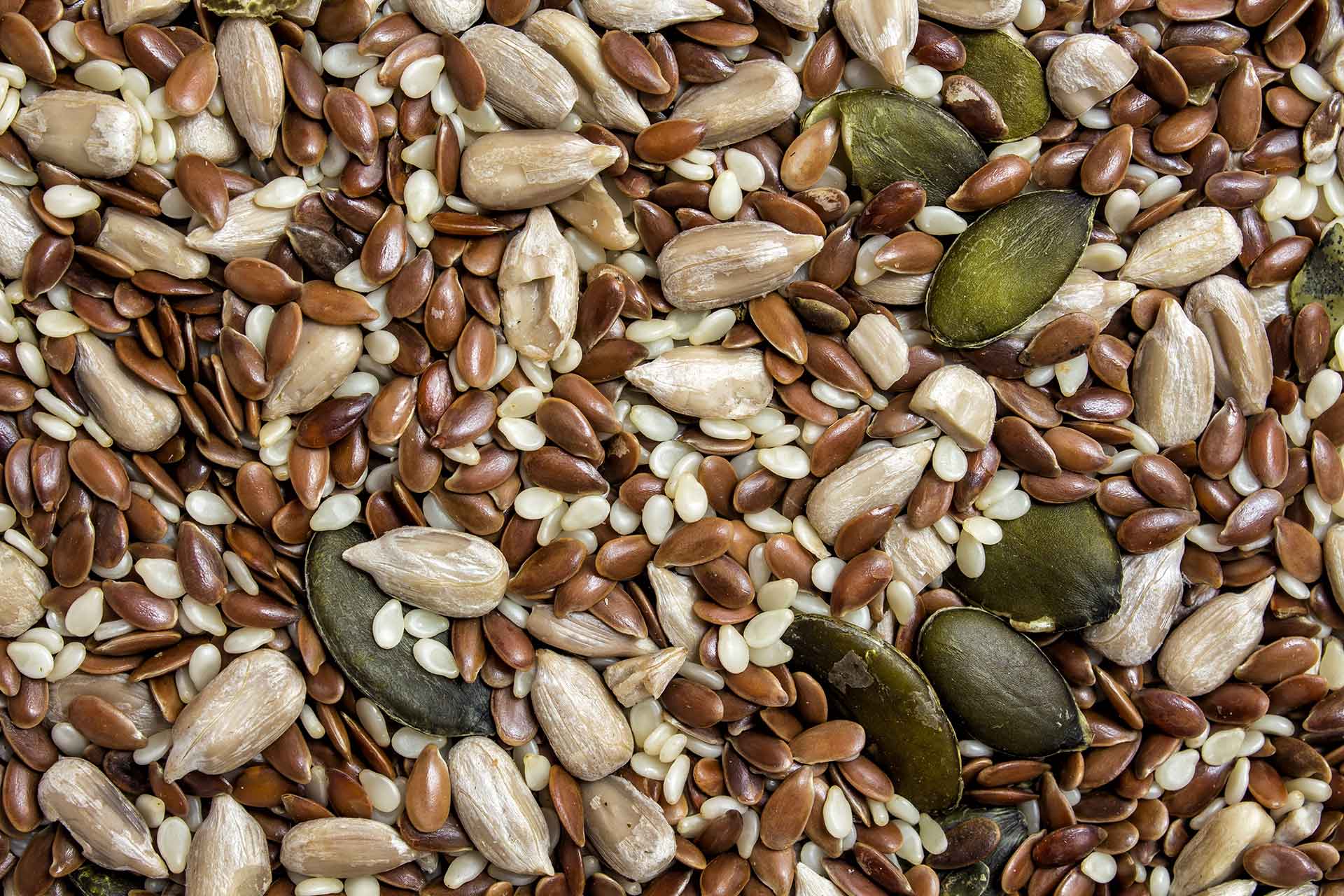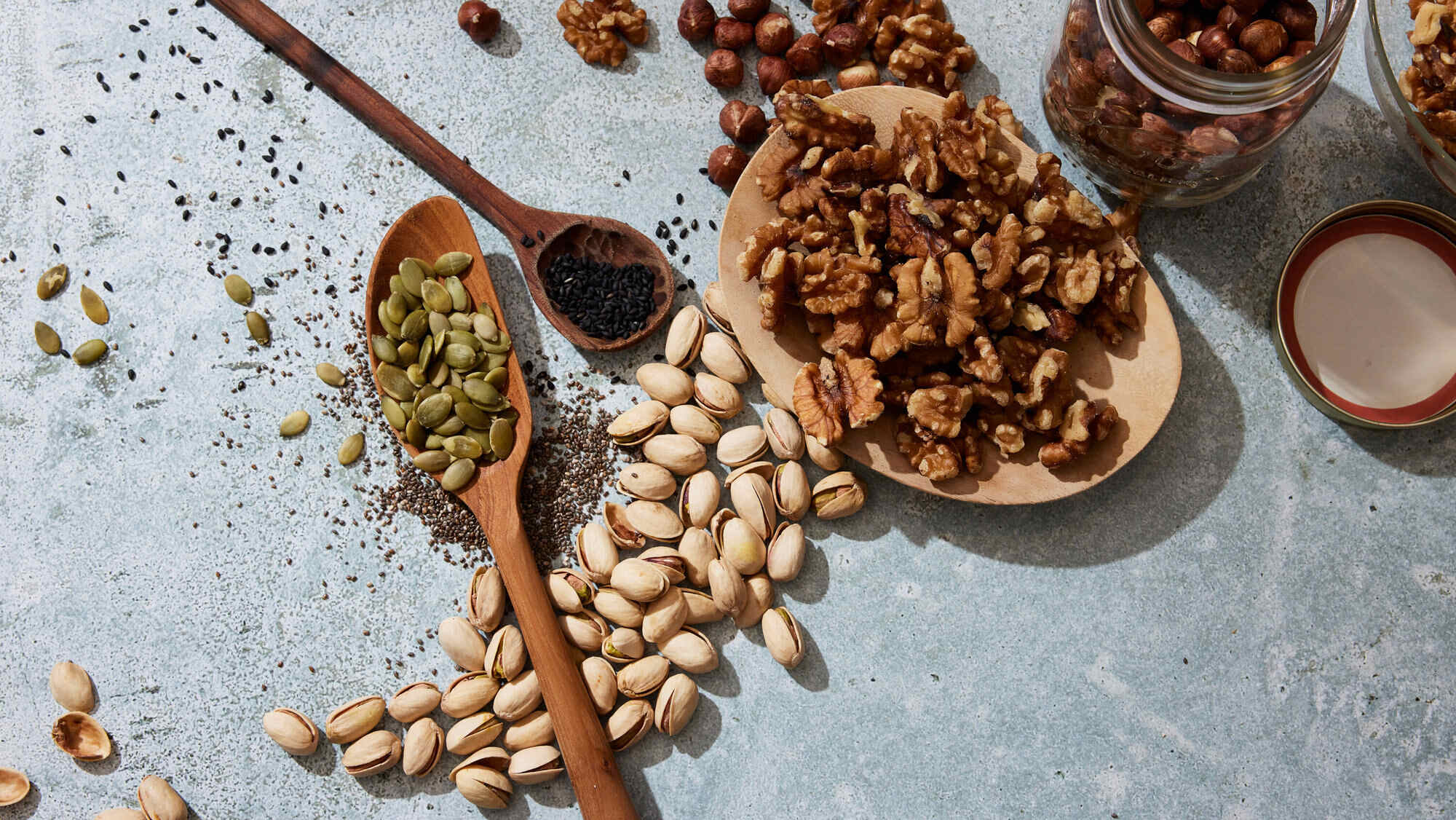Pumpkin seeds, often overlooked, pack a nutritional punch. These tiny seeds are rich in protein, healthy fats, and essential minerals like magnesium and zinc. Incorporating them into your diet can boost heart health, improve sleep, and support immune function. Whether you enjoy them roasted as a snack, sprinkled on salads, or blended into smoothies, there are countless ways to reap their benefits. This guide will show you how to make the most of pumpkin seeds, ensuring you get the maximum nutritional value from this versatile superfood. Get ready to transform your meals with these nutrient-dense powerhouses.
Essential Ingredients for This Recipe
Ingredients:
- 1 cup raw pumpkin seeds
- 1 tablespoon olive oil
- 1 teaspoon sea salt
- 1 teaspoon smoked paprika
- 1/2 teaspoon garlic powder
- 1/2 teaspoon onion powder
- 1/4 teaspoon black pepper
- Optional: 1/4 teaspoon cayenne pepper for extra heat
Tools You Will Need
Tools Needed to Maximize the Benefits of Pumpkin Seeds
- Baking Sheet: For roasting pumpkin seeds.
- Mixing Bowl: To mix seeds with oil and seasonings.
- Colander: Rinse seeds to remove pulp.
- Towel: Pat seeds dry before roasting.
- Measuring Spoons: Measure oil and seasonings accurately.
- Spatula: Stir seeds while roasting.
- Airtight Container: Store roasted seeds to keep them fresh.
- Blender or Food Processor: Make pumpkin seed butter or powder.
- Knife: Cut open pumpkins to extract seeds.
- Spoon: Scoop out seeds from the pumpkin.
- Oven Mitts: Handle hot baking sheets safely.
- Parchment Paper: Line baking sheet for easy cleanup.
- Jar: Store homemade pumpkin seed butter.
- Coffee Grinder: Grind seeds into a fine powder for smoothies or baking.
Roast pumpkin seeds for a crunchy snack. Rich in magnesium, zinc, and antioxidants, they boost heart health, improve sleep, and support immune function. Add to salads or yogurt for extra nutrition.
Why This Process Is Important
Pumpkin seeds, packed with nutrients like magnesium, zinc, and healthy fats, play a crucial role in boosting heart health and immune function. Their high antioxidant content helps fight free radicals, reducing inflammation and protecting cells from damage. Regular consumption can improve sleep quality, thanks to the amino acid tryptophan, which promotes serotonin production.
Incorporating these seeds into daily diets supports weight management efforts due to their high fiber content, enhancing satiety and reducing cravings. For individuals looking to enhance their dietary profile, pumpkin seeds offer a versatile and nutrient-dense option, contributing to overall well-being and disease prevention.
Step-by-Step Guide to Maximizing the Benefits of Pumpkin Seeds
Maximizing the Benefits of Pumpkin Seeds
-
Selecting Quality Seeds
- Choose raw, unsalted pumpkin seeds.
- Look for organic options to avoid pesticides.
- Check for freshness by ensuring seeds are not discolored or have an off smell.
-
Proper Storage
- Store seeds in an airtight container.
- Keep in a cool, dark place to maintain freshness.
- Refrigerate or freeze for long-term storage.
-
Roasting Pumpkin Seeds
- Preheat oven to 350°F (175°C).
- Spread seeds on a baking sheet in a single layer.
- Lightly coat with olive oil and sprinkle with sea salt.
- Roast for 10-15 minutes, stirring occasionally until golden brown.
-
Seasoning Options
- For a savory twist, add garlic powder, paprika, or cumin.
- For a sweet option, use cinnamon, nutmeg, or maple syrup.
- Experiment with herbs like rosemary or thyme.
-
Incorporating into Meals
- Sprinkle on salads for added crunch.
- Add to yogurt or smoothies for extra protein.
- Mix into granola or trail mix for a nutritious snack.
-
Making Pumpkin Seed Butter
- Blend roasted seeds in a food processor until smooth.
- Add a pinch of salt and a drizzle of honey if desired.
- Store in an airtight jar and refrigerate.
-
Pumpkin Seed Oil
- Use as a finishing oil for salads or soups.
- Drizzle over roasted vegetables for added flavor.
- Mix into dips or dressings for a nutty taste.
-
Health Benefits
- Rich in magnesium, zinc, and omega-3 fatty acids.
- Supports heart health and immune function.
- High in antioxidants which help reduce inflammation.
-
Daily Consumption
- Aim for a handful (about 1 ounce) per day.
- Can be eaten as a snack or added to various dishes.
- Balance with other nuts and seeds for a varied diet.
-
Allergy Considerations
- Be aware of nut allergies as seeds can sometimes cause reactions.
- Introduce slowly if trying for the first time.
- Consult with a doctor if unsure about allergies.
-
Sustainability
- Opt for locally sourced seeds to reduce carbon footprint.
- Support sustainable farming practices.
- Compost seed shells to minimize waste.
-
Creative Uses
- Use as a garnish for soups or stews.
- Incorporate into baking recipes like bread or muffins.
- Make pumpkin seed pesto by blending with basil, garlic, and olive oil.
-
Nutritional Information
- One ounce contains about 150 calories.
- Provides 7 grams of protein and 1.7 grams of fiber.
- Contains iron, potassium, and vitamin K.
Savor the Goodness of Pumpkin Seeds
Pumpkin seeds pack a punch when it comes to nutrition and versatility. Loaded with protein, healthy fats, fiber, and essential minerals, they’re a small but mighty addition to your diet. Toss them in salads, blend them into smoothies, or enjoy them roasted as a snack. Their antioxidant properties can help reduce inflammation, while their magnesium content supports heart health. Plus, they’re easy to store and incorporate into various dishes. Whether you’re looking to boost your immune system, improve sleep, or just add a crunchy texture to your meals, pumpkin seeds are a fantastic choice. So, next time you carve a pumpkin or spot these seeds at the store, remember their myriad benefits. Embrace the simplicity and power of pumpkin seeds in your daily routine.
Common Questions About Maximizing the Benefits of Pumpkin Seeds
What are the health benefits of pumpkin seeds?
Pumpkin seeds are packed with nutrients like magnesium, zinc, and omega-3 fatty acids. They help boost heart health, improve sleep, and support immune function.
How can I incorporate pumpkin seeds into my diet?
You can sprinkle them on salads, mix them into yogurt, or add them to smoothies. They also make a great snack on their own, either raw or roasted.
Are there any allergies associated with pumpkin seeds?
While rare, some people might be allergic to pumpkin seeds. Symptoms can include itching, swelling, or digestive issues. If you experience any of these, it's best to avoid them.
Can I eat pumpkin seeds if I'm on a diet?
Absolutely! Pumpkin seeds are low in carbs and high in protein and fiber, making them a great addition to most diets. Just watch your portion size, as they are also calorie-dense.
How should I store pumpkin seeds?
Keep them in an airtight container in a cool, dark place. For longer shelf life, you can store them in the refrigerator or freezer.
Are there any side effects of eating too many pumpkin seeds?
Eating too many can lead to digestive issues like bloating or gas. Moderation is key to enjoying their benefits without any discomfort.
Can I use pumpkin seeds in baking?
Yes, pumpkin seeds can be a great addition to breads, muffins, and cookies. They add a nice crunch and boost the nutritional value of your baked goods.
